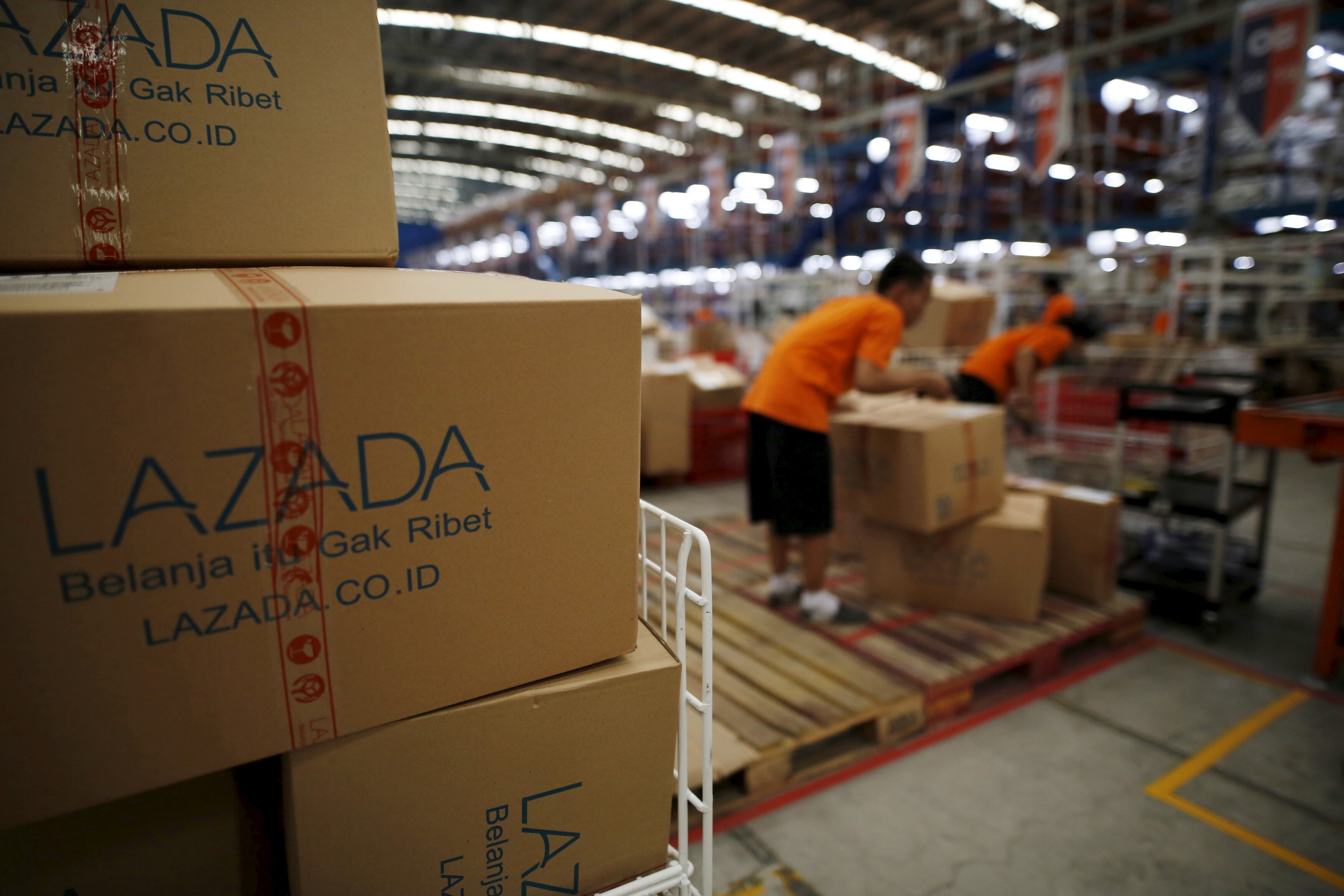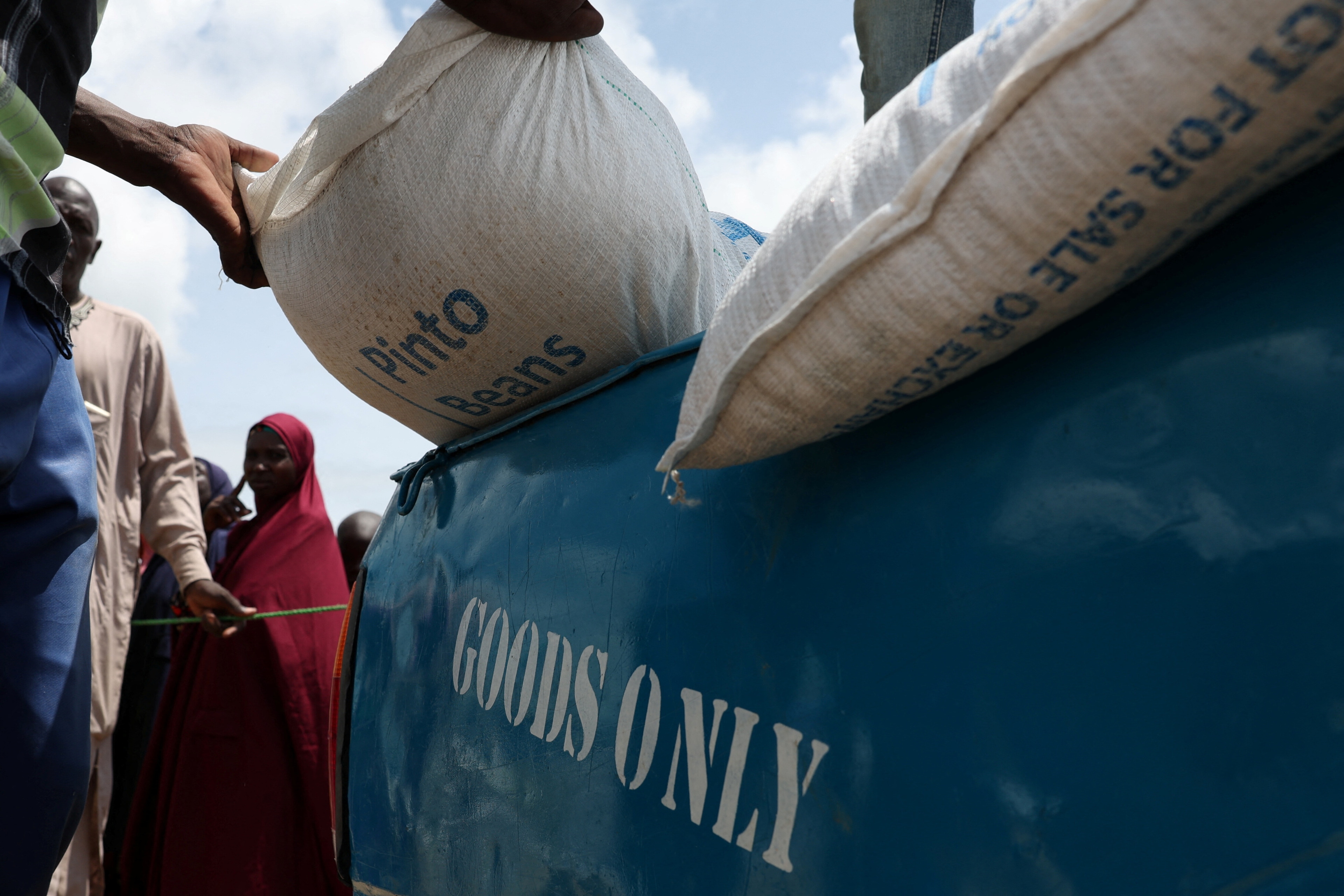Trade facilitation is a quick win for vaccine equity. Here's why

Image: REUTERS/Francis Kokoroko.
Violeta Gonzalez Behar
Head, Partnerships, Outreach and Resource Mobilization, Enhanced Integrated Framework Executive Secretariat, World Trade OrganizationListen to the article
- Vaccine inequity leaves people in developing countries vulnerable to new virus strains and slows down economic progress.
- Trade facilitation measures are a fast, cost-effective way to enable the smooth flow of vaccine supplies across borders to aid recovery.
- We outline how trade facilitation can address these key challenges and highlight the success of a project in Mozambique.
As vaccine inequity hinders economic recovery in less-developed countries and threatens to reverse progress towards the Sustainable Development Goals (SDGs), trade facilitation measures offer a fast, cost-effective solution. From digitizing trade documents to cutting red tape and making border processes more efficient, they ensure vaccines travel more easily to those who need them most.
While boosting COVID-19 vaccine production – especially in the countries with low immunization rates – resolving licensing disputes and eradicating trade barriers such as export restrictions are also vital for equitable vaccine access, they require significant time and investment. In contrast, implementing trade facilitation measures – as laid out in the WTO Trade Facilitation Agreement – can reap results within months rather than years, and ensure that when vaccine supplies do ramp up, they flow quickly to where they are needed most.
Facilitating trade in COVID-19 vaccines also brings long-term benefits for countries’ broader health systems and economies, reducing the future cost of importing anything from perishable foods to pharmaceutical inputs.
Why vaccine inequity matters
According to the Global Dashboard for Vaccine Equity, a joint initiative of the United Nations Development Programme (UNDP), the World Health Organization (WHO) and the University of Oxford, just 2.14% of people in low-income countries had received one COVID-19 vaccine dose by 30 August, compared with 57.34% for high-income countries.
The gap is even wider for least developed countries (LDCs). In the Democratic Republic of Congo, for example, only 0.1 doses per 100 people had been administered by 30 August, rising to just 0.37 for Tanzania and 1.89 for Sudan.
Leaving populations more vulnerable to new virus strains and outbreaks comes at a huge human and economic cost, slowing the COVID-19 recovery and setting back SDGs related to poverty, health and inequality.
A new report by the Economist Intelligence Unit suggests countries that have not vaccinated 60% of their population by mid-2022 will lose $2.3 trillion of gross domestic product in 2022-25, with emerging countries bearing two-thirds of these losses. High vaccine prices will also strain fragile health systems and impact routine immunizations and services, causing upswings in diseases like pneumonia and measles.
How trade facilitation helps
Just as global trade and the world economy will not recover fully without equitable vaccination, vaccine equity will not be possible without free, fair and efficient trade.
There is a myriad of obstacles associated with importing vaccines that can be addressed by trade facilitation. For example, inefficient cooperation between border agencies or reliance on outdated and paper-based processes can cause vaccines and pharmaceutical products with short shelf lives to be held up at borders for weeks in expensive storage facilities. Different certification requirements for the various components of vaccine kits can add to administrative burdens. Such hurdles inflate costs and create uncertainty for health providers and partners.
What is the World Economic Forum doing on trade facilitation?
These challenges are shared by many sectors and countries – both developed and developing – creating opportunities for replicating efforts and sharing best practices. But while vaccine imports are time-sensitive for any country, LDCs have an even shorter time window in which to receive, distribute and administer doses that are often donated to them close to expiry. The stretched health services of LDCs and the micro, small and medium-sized enterprises (MSMEs) that underpin their economies also have most need for cost savings.
Key steps to reduce costs and import delays through trade facilitation include streamlining border processes, for example by introducing ‘green lanes’ for essential goods or undertaking pre-arrival processing for more trade transactions. Digitizing trade documents, certificates and signatures also helps, as does facilitating product certification, for example by adopting international standards or – where safe – applying certification criteria more flexibly.
Governments can progress such measures by either ratifying and implementing the WTO’s Trade Facilitation Agreement themselves, or by making Aid for Trade investments in the technical assistance that supports less-developed countries on the same journey.
How to maximize investments in trade facilitation
Maintaining a tight scope in trade facilitation interventions makes the work more manageable and brings faster results –helping give public- and private-sector sponsors confidence to scale up or replicate them elsewhere.
In a project in Mozambique, the Global Alliance for Trade Facilitation (the Alliance) is digitizing application and approval processes for the pre-shipment authorization of vaccines, rather than attempting wholesale customs reform, for example. Instead of spending years implementing a new system, it is integrating the processes into the country’s existing Single Window.
The project – which aims to slash the time vaccines shipments are delayed from up to two weeks currently – should be achievable within 12 to 18 months. The Alliance, with its partner UNICEF is already considering launching a similar project in Botswana.
Winning the support of government agencies that should ultimately have ownership of trade facilitation projects is also vital to their success. But designing fit-for-purpose trade facilitation measures requires input from multiple actors, including private-sector partners such as logistics companies or non-governmental organizations that can help identify weak spots. For projects to have maximum impact, they should also set out to solve challenges that affect entire sectors rather than a single favoured company.
This requires building trust between government, businesses and civil society, and ensuring all voices are heard on the National Trade Facilitation Committees charged with leading such discussions. The Alliance's Mozambique project is being implemented through Mozambique’s Ministry of Health and other agencies, with UNICEF contributing data and expertise.
Many trade facilitation measures targeted at COVID-19 vaccinations will also benefit routine vaccinations, which have historically struggled to attract as much attention, despite trade in them expanding five-fold in the 15 years preceding the pandemic.
By focusing not only on COVID-19 vaccinations but on those for diptheria, tetanus, hepatitis B, pneumonia, meningitis, measles and rubella, and polio, the Alliance's Mozambique project taps into the urgency surrounding COVID-19 jabs to contribute to the government’s five-year comprehensive vaccination campaign. Seeking to identify and address trade bottlenecks that are common to vaccinations or broader health services in this way makes trade facilitation measures more sustainable and supports their investment case.
Don't miss any update on this topic
Create a free account and access your personalized content collection with our latest publications and analyses.
License and Republishing
World Economic Forum articles may be republished in accordance with the Creative Commons Attribution-NonCommercial-NoDerivatives 4.0 International Public License, and in accordance with our Terms of Use.
The views expressed in this article are those of the author alone and not the World Economic Forum.
Stay up to date:
Vaccination
Related topics:
Forum Stories newsletter
Bringing you weekly curated insights and analysis on the global issues that matter.







